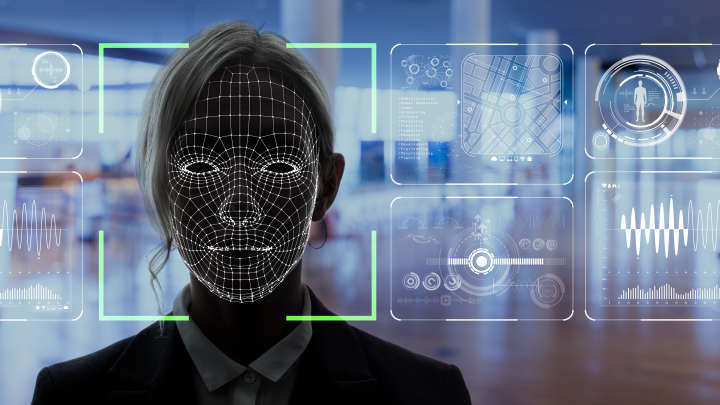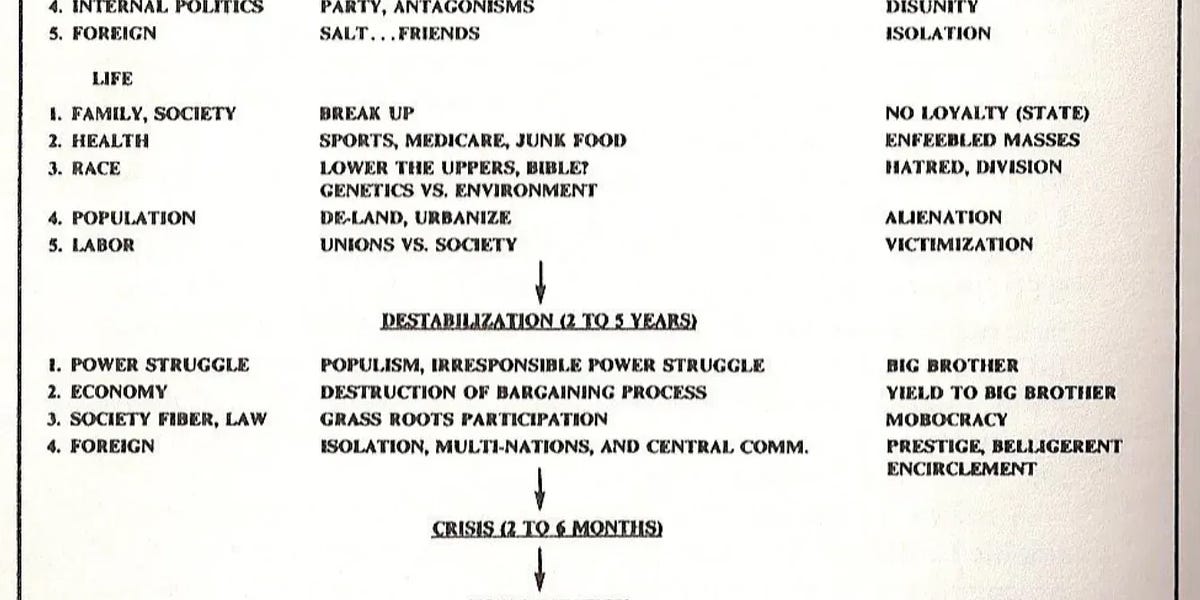
Something that should be concerning to all freedom loving citizens is the implementation of digital ID’s. Well to the south of us, a national digital ID system for U.S. citizens is fast becoming a reality following a vote by the U.S. Senate Homeland Security and Governmental Affairs Committee to advance the Improving Digital Identity Act.
For those not familiar with them, digital IDs act as online, data-laden representations of human beings. Many analysts, such as the authors of a 2019 McKinsey Global Institute report, argue they could be the key to unlocking access to financial services, various government benefits and educational opportunities, as well as a number of other critical services. Some of the same analysts, however, also warn that the "risks and potential for misuse of digital ID are real and deserve careful attention." Can you say “China!”
Now to be fair, although we have reasons to be concerned about digital IDs, it's important to separate the facts from the fearmongering fiction.
Simply put, a digital identity enables an individual to prove who they are in the virtual world. Advocates claim digital IDs offer greater privacy than traditional forms of identification and can help minimize some of the risks associated with physical documents such as driver's licenses, passports, etc. Others, though, are ringing the alarm bells, warning that the introduction of digital IDs will almost certainly lead to an erosion of civil liberties.
"Digital is often positioned as the 'future,' and many people cast such a transition as inevitable," writes Jay Stanley, a senior policy analyst at the ACLU, who believes digital IDs could prove to be a privacy nightmare. "But digital is not always better — especially when systems are exclusively digital." I can just see some government bureaucrat saying, “you’re dead, the computer says so, look right here!”
"There’s a reason that most jurisdictions have spurned electronic voting in favor of paper ballots, for example," Stanley writes. With voting software in some states vulnerable to outside interference, paper ballots increasingly appear to be much safer. Ironic isn’t it.
Similarly, digital IDs are vulnerable to attack. Horror stories involving people's identities being stolen are not uncommon. Remember, digital IDs are synonymous with data, and if there is one thing hacker's love, it's data. It’s a license to scam!
If digital identities are introduced in the U.S., which looks increasingly likely, they will be inextricably linked with financial services. Financial institutions, after all, are being encouraged to lead the way in the development of comprehensive digital identity solutions. Digital IDs, we're told, will become more critical as online and mobile banking becomes more popular.
Recent headlines make it easy to see why so many people, fearful of the enforcement of political/ideological conformity through financial control, are hesitant to embrace digital IDs.
Recently, JP Morgan Chase recently cut ties with Kanye West, who now goes by the name Ye. While the bank's notification to him reportedly predates recent controversies involving the outspoken rapper and designer — he sported a White Lives Matter tee shirt and made remarks widely condemned as anti-Semitic — Ye appears to hold certain viewpoints that don't align with those held by the multinational's executives. That’s cancel culture folks, much easier to do digitally!
It's not just outspoken rappers that are in trouble, JP Morgan decided to freeze the bank account of the National Committee for Religious Freedom (NCRF), a nonpartisan nonprofit founded by former Kansas Republican Sen. Sam Brownback. Brownback, who served as ambassador-at-Large for international religious freedom in the Trump administration, was offered no explanation for why the account was frozen. I can think of one, hint, it’s five letters and starts with a T and end with a P.
Not to be outdone, recently PayPal, an online payment system used by millions, planned to fine users $2,500 in damages if they were found guilty of spreading "misinformation." Misinformation as defined by who, why PayPal of course. In the end PayPal was forced to backtrack and reassure users that the policy won't be introduced, but only after unprecedented backlash, mass account cancellations by users and a shit kicking of the company's stock price.
In case you had forgotten, there’s the GoFundMe saga, in which the for-profit crowdfunding platform headquartered in California, froze donations to Canadian truckers opposing Covid vaccine mandates. Of course, it’s not only politicians in the US who favour digital ID’s, our very one Justin Trudeau, is a “fan boy!” Makes sense, makes it easier to freeze the accounts of anyone who didn’t vote Liberal, kidding, well maybe!
The high probability of digital IDs being closely associated with access (or lack thereof) to finances and the growing link between ideological leanings and financial exclusion are fueling much of the resistance to digital identification. Ya think?
But the concerns don't end there. Brett Solomon, the executive director of Access Now, an NGO that defends and extends the digital rights of users at risk around the world, argues that these IDs are ripe for abuse and that the threats of implementing them far outweigh the benefits.
Citing his decade of experience tracking the perils and promise of technology for human rights, Solomon wrote in a 2018 Wired article that "digital ID, writ large, poses one of the gravest risks to human rights of any technology that we have encountered."
Coupled with "facial recognition technology and other identifiers," Solomon warned, digital IDs have "the capacity for geo-location of identifiers." In other words, tracking citizens' every digital movement. You mean like in freedom loving China?
Solomon's ominous warnings tie in with fears of human & privacy rights proponents, that Big Brother or one of his minions are always watching, and if they don’t like what you're doing, especially if it’s opposing “Big Brother”, then punishment will surely be dished out — fears that have only been validated by recent events.

In this video I'll share with you why I think self-censorship is even far worse than censorship legislation that political tyrants are trying to pass worldwide.
You can watch it directly on Locals, as well on my Rumble channel but not on YouTube as due to censorship I still can't post for 4 more days.
As always I welcome your uncensored opinions and thoughts!
In this video I'll share my thoughts on why some experts, politicians and bureaucratic tyrants are still pushing their failed policies and what we need to do in response.
As always I welcome your thoughts and comments.
Yes our cowardly Prime Minister is at it again, in a recent speech and in an attempt to "memory hole" the facts, he now claims that he never mandated mass vaccinations for Canadians, but only incentivized them for doing so!
Given I'm banned from YouTube currently I'll only be posting it to Rumble as well will post it directly on my Locals so you can watch it there as well.
I'll share my thoughts and as always welcome your comments!
In case you missed it, there was an attempted assassination of former President Trump, and in this video I'll share my thoughts on how mainstream media responded and how President Trump responded!
As always I welcome your thoughts and comments!
On YouTube
On Rumble
https://rumble.com/v56xivx-balls-of-steel.html?mref=uo5nw&mc=aodp5
Amazing must read by Ayaan Hirsi Ali
https://open.substack.com/pub/ayaanhirsiali/p/we-have-been-subverted?r=14mqvr&utm_medium=ios














